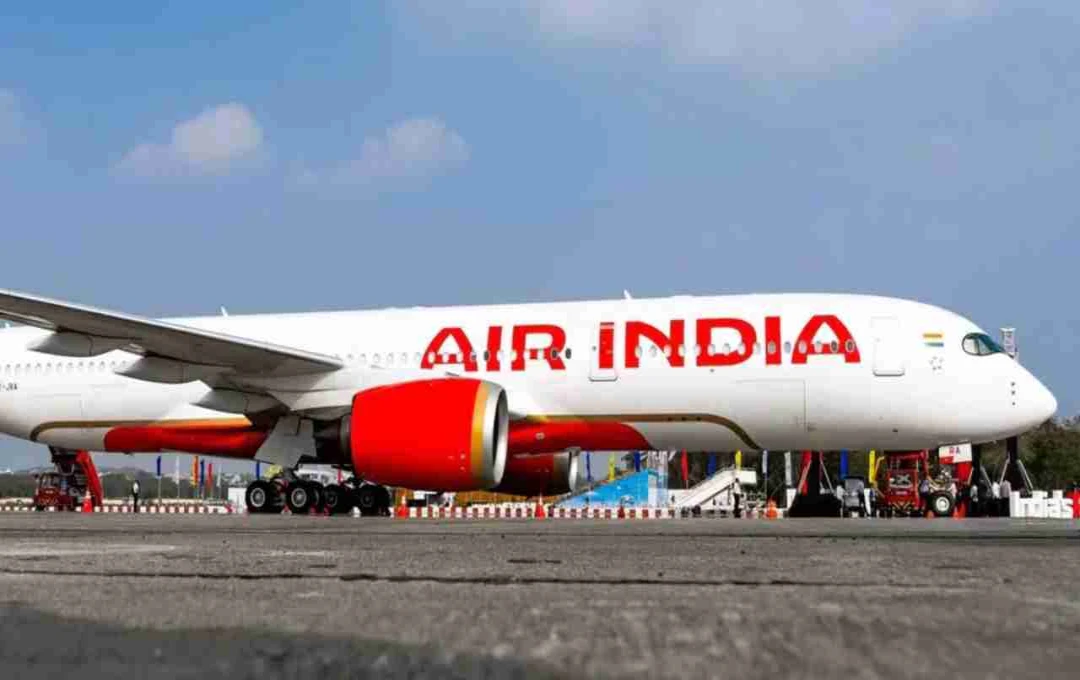Following a fatal Air India flight crash on June 12th, passenger fear and insecurity have surged, significantly impacting Air India's bookings. Reports indicate a substantial 20 percent drop in bookings following the accident.
Air India: The June 12th, 2025 crash of Air India flight AI-171, en route from Ahmedabad to London, has caused widespread concern across the nation. The loss of 274 lives in the crash has shaken the country. Air India is facing significant negative feedback from passengers, resulting in a sharp decline in bookings and a surge in cancellations.
The impact extends beyond a single aircraft or route, significantly affecting the entire Air India network, particularly international routes. Passengers are questioning safety and are increasingly avoiding Air India.
Direct Impact of the Crash: 20 Percent Drop in Bookings

According to travel industry organizations, Air India bookings have dropped by an average of 20 percent following the flight crash. Ravi Gosain, President of the Indian Association of Tour Operators (IATO), reports an 18-22 percent decline on international routes and a 10-12 percent drop on domestic routes.
Indian citizens traveling to Europe, Southeast Asia, and the Middle East have particularly postponed or canceled their bookings.
Ticket Price Reductions
Reduced demand has directly impacted ticket prices. Air India is now forced to offer discounted fares to fill seats. Domestic routes have seen an 8-12 percent decrease in ticket prices, particularly on routes where Air India competes with low-cost airlines like IndiGo and Akasa.
International fares have also dropped by 10-15 percent, especially for destinations in Europe and Southeast Asia.
Increase in Ticket Cancellations
The cancellation of pre-booked tickets is also significant. IATO reports a 15-18 percent cancellation rate on international routes and 8-10 percent on domestic routes. These figures indicate a significant erosion of passenger confidence in Air India.
However, some experts believe this situation may be temporary, and passenger confidence could recover over time.
DGCA Investigation Report and Air India's Response

Following the accident, the Directorate General of Civil Aviation (DGCA) conducted a thorough inspection of Air India's Boeing 787 fleet. All 24 aircraft were inspected and found to meet current safety standards.
However, experts emphasize that the absence of technical malfunctions does not diminish the concerns. Air India needs to improve aircraft maintenance. Passenger trust will only return with a prioritization of safety and transparency.
Passenger Fear and Psychological Impact
The June 12th tragedy impacted not only ticket bookings but also deeply affected public morale. The plight of the families of the deceased passengers is heartbreaking. Passengers are questioning the safety of air travel, despite technological advancements and security checks.
Many passengers have expressed concerns on social media. Some are now opting for alternative modes of transport, especially for shorter distances.
Future Outlook: Is Recovery Possible?
Travel industry experts believe that transparency regarding the accident investigation, upgrades to flight maintenance records, and proactive passenger communication could gradually restore confidence in Air India.
Improvements in customer service, alongside safety, are crucial. Passengers need reassurance that such lapses will not be repeated and that their safety is paramount.
Competitor Airlines Capitalizing on the Situation
While Air India faces losses, competitors like IndiGo, Akasa, and Vistara are seemingly benefiting. These airlines are experiencing a slight increase in bookings, their reliable track records attracting passengers.












